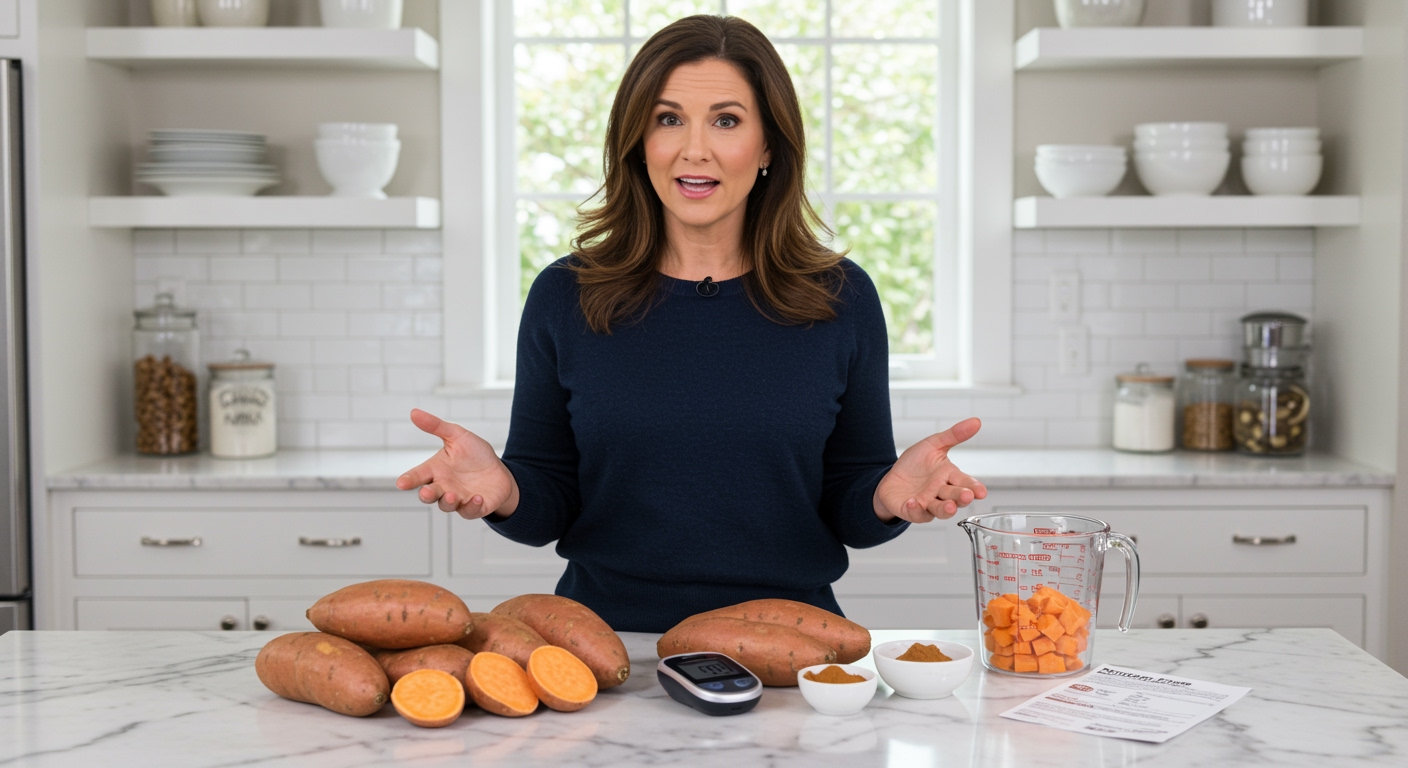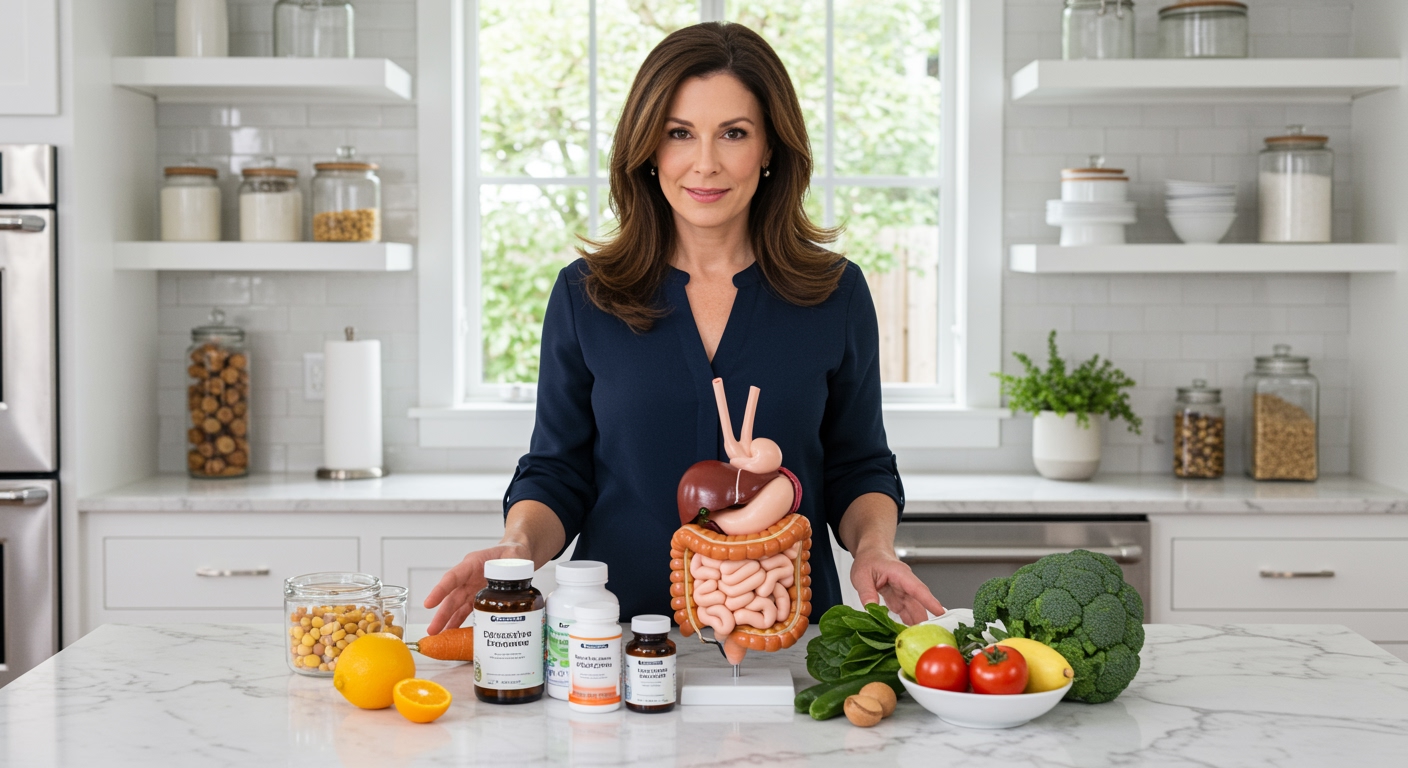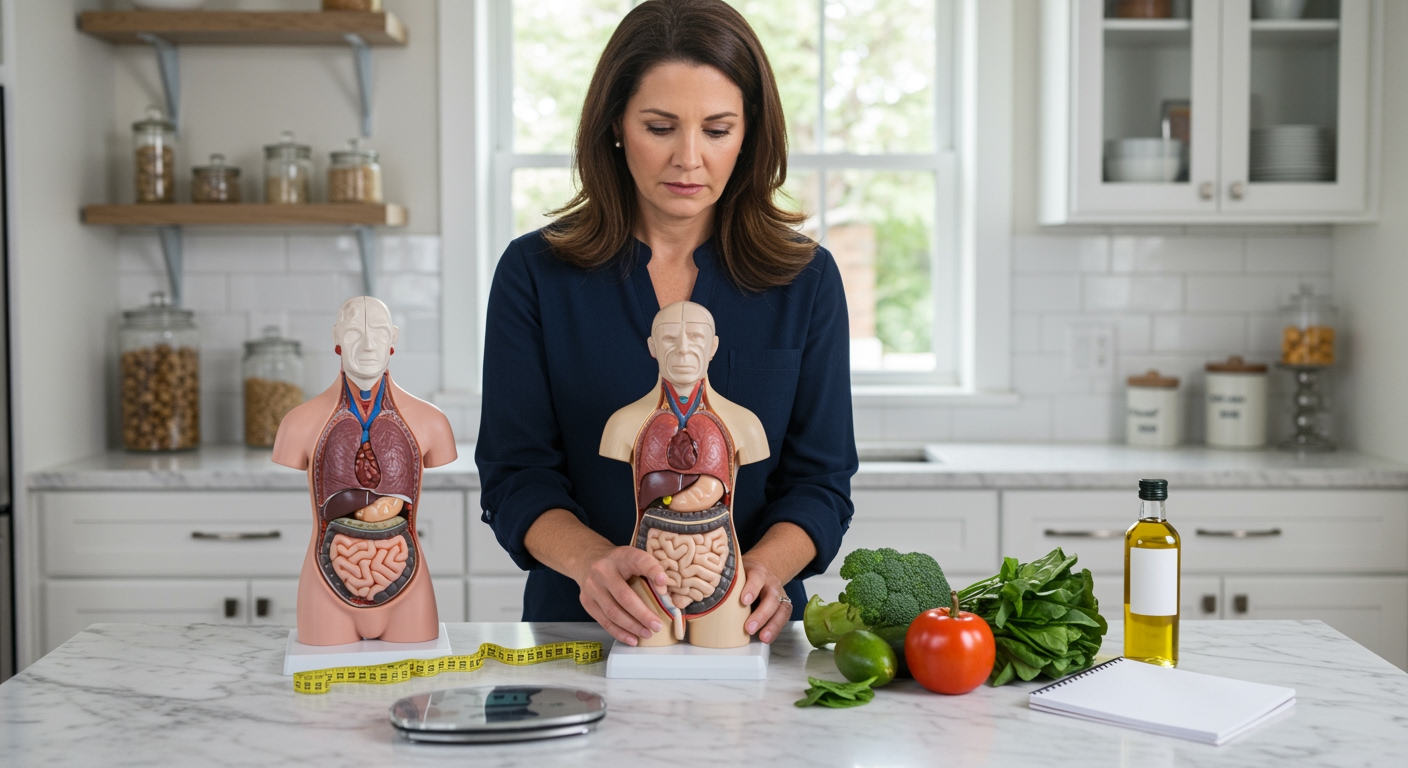✪ Key Takeaway: Ghee is generally safe for women with PCOS when consumed in moderation as part of a balanced diet.
Introduction
You walk down the grocery aisle and see that golden jar of ghee staring back at you.
Your mind races with questions about whether this traditional fat will help or harm your PCOS symptoms.
Hi, I’m Abdur, your nutrition coach and today I’m going to explain whether ghee is safe for women with PCOS and how it might actually support your hormone balance.
What Makes Ghee Different From Regular Butter?
Ghee goes through a special heating process that removes water and milk proteins.
This process creates a pure fat that contains no lactose or casein.
The removal of these components makes ghee easier to digest for many people.
Ghee has a higher smoke point than butter, making it more stable for cooking.
It contains fat-soluble vitamins A, D, E, and K that your body needs for hormone production.
✪ Fact: Ghee can last for months at room temperature without refrigeration due to its pure fat composition.
How Does Ghee Affect Insulin Resistance in PCOS?
Most women with PCOS struggle with insulin resistance, where cells become less responsive to insulin.
Ghee contains butyric acid, a short-chain fatty acid that may improve insulin sensitivity.
This fatty acid helps your gut bacteria produce compounds that support metabolic health.
Ghee also provides conjugated linoleic acid (CLA), which research shows may help with weight management.
The healthy fats in ghee can slow down the absorption of carbohydrates when eaten together.
This slower absorption helps prevent the sharp blood sugar spikes that worsen PCOS symptoms.
✪ Pro Tip: Add a teaspoon of ghee to your vegetables to improve nutrient absorption and blood sugar control.
Can Ghee Support Hormone Balance in PCOS?
Your body needs healthy fats to produce hormones like estrogen, progesterone, and testosterone.
Ghee provides the building blocks your body uses for hormone synthesis.
The vitamin A in ghee supports your thyroid function, which often becomes sluggish with PCOS.
Vitamin D from ghee helps regulate your menstrual cycle and may improve ovulation.
The anti-inflammatory properties of ghee may help reduce the chronic inflammation common in PCOS.
Lower inflammation levels can lead to better hormone balance and reduced PCOS symptoms.
✪ Note: Women with PCOS often have vitamin D deficiency, making ghee a valuable dietary source.
What About Weight Management With Ghee and PCOS?
Many women with PCOS worry that eating ghee will cause weight gain.
However, the healthy fats in ghee can actually help you feel full and satisfied after meals.
This satiety effect may prevent overeating and reduce cravings for processed foods.
Ghee contains medium-chain fatty acids that your body burns more easily for energy.
The key is portion control – one to two teaspoons per day is typically appropriate for most women.
Using ghee to cook vegetables makes them more satisfying and helps you absorb fat-soluble vitamins.
✪ Pro Tip: Replace processed cooking oils with ghee to reduce inflammation while supporting weight management goals.
How Should Women With PCOS Use Ghee Safely?
Start with small amounts – about half a teaspoon daily – to see how your body responds.
Choose grass-fed ghee when possible, as it contains higher levels of beneficial compounds.
Use ghee for cooking vegetables, adding to warm drinks, or spreading on whole grain toast.
Avoid eating ghee with high-sugar foods, as this combination can worsen insulin resistance.
Monitor your symptoms and energy levels when you add ghee to your diet.
If you notice improved digestion and stable energy, ghee is likely working well for your PCOS management.
Remember that ghee is calorie-dense, so balance it within your overall daily calorie needs.
✪ Note: Women with gallbladder issues should consult their doctor before adding ghee to their diet.
The Bottom Line
Ghee can be a safe and beneficial addition to a PCOS-friendly diet when used mindfully and in appropriate portions.
The best foods for PCOS are those that work with your body, not against it – and ghee often falls into this supportive category.
I would love to hear about your experiences with ghee and PCOS management, so please share your thoughts or questions in the comments below.
References
At NutritionCrown, we use quality and credible sources to ensure our content is accurate and trustworthy. Below are the sources referenced in writing this article:
- Casa de Sante: PCOS Ghee
- Dr. Brighten: Best Diet for PCOS
- PubMed Central: PCOS and Nutrition
- Birla Fertility: PCOS Diet Plan





